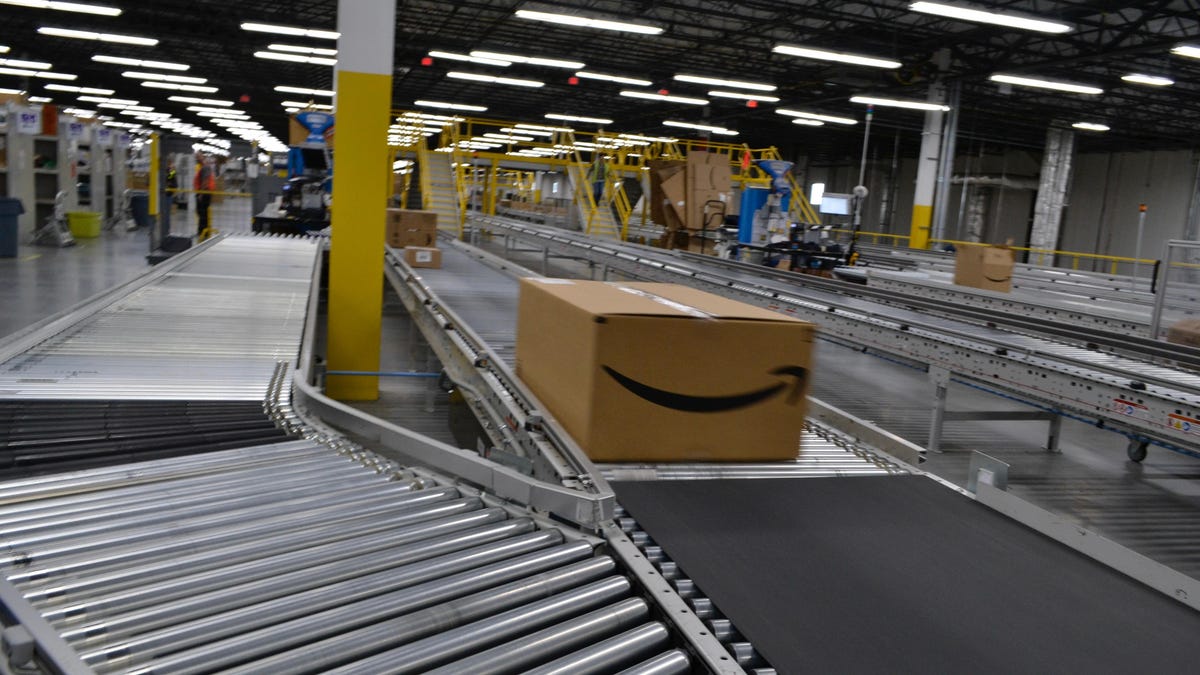 Why You Can Trust CNET
Why You Can Trust CNET Amazon banned this shopper. Then he outsmarted them
Short story: It wasn't easy.

Hopefully, this one's a keeper.
We'll call him "Mark." About three years ago, Mark got an email from Amazon saying, "We noticed that a number of your orders have been returned."
It was the start of a rocky relationship with the world's biggest e-commerce company. Several months later, Mark got banned from Amazon for making too many returns. But after a lot of trial and error, he eventually figured out a way to sneak back onto the site.
"I totally understand why they do this," he said in an interview this week. "And now that I've been through it, I know how to prevent it and get around it in the future."
Mark, a 22-year-old student whose name was changed for this story to maintain his anonymity, shared his cat-and-mouse game of getting back on Amazon. He said his story may help other customers avoid the same fate and -- even if they get banned -- know it's not necessarily final.
Amazon's practice of banning customers for excessive returns got significant attention this week after The Wall Street Journal reported on the lesser-known limit to Amazon's generous returns policy. The company says bans are "rare occasions," but declined to say how many customers have been affected.
Banning customers isn't something Amazon takes "lightly, but with over 300 million customers around the world, we take action when appropriate to protect the experience for all our customers," the company said in a statement Tuesday.
Amazon didn't respond to a request for comment for this story. In its return policy, Amazon doesn't specify a limit on returns. However, according to its conditions of use, it "reserves the right to refuse service, terminate accounts, terminate your rights to use Amazon Services, remove or edit content, or cancel orders in its sole discretion." The red flag in Mark's case appeared to be returning an item or two every other week for several months.
The attention on Amazon's returns policy comes at a time when the company is trying to restrain its ballooning shipping costs, as the demand for more orders from its Prime members keeps growing. Last year, the company's shipping costs were $21.7 billion, representing 12 percent of total sales. Despite being the world's leading e-retailer, it's consistently operated on thin profit margins -- explaining its need to keep returns in check.
Highlighting the increased cost of Prime and its two-day shipping perk, Amazon this month raised the price of the membership to $119 from $99.
Here's what happened to Mark
A few years back, Mark started making electronics repairs for his fellow college students and ordered parts from Amazon. He'd return items that were the wrong parts or defective, but sometimes would send back stuff he'd ordered extra of and didn't need anymore.
"Needless to say, my return history was extensive," he said. "It wasn't to me crazy, but maybe to them."
He got his first email from cis@amazon.com, alerting him to his many returns and asking if there's anything the company can do to improve his "shopping experience," according to screenshots of emails from Amazon that Mark let CNET review.
A few months later, he got another email from the same address with some sharper wording: "While we expect occasional problems with orders, such large numbers of returns can suggest that customers are unaware of our return policies.
"We want to call your attention to our returns policies because repeated misuse can result in the closure of your Amazon account," the email continued.
Mark's habits didn't didn't change. A few weeks later, Amazon closed down his account, refunded part of his Prime membership and canceled pending orders.
He appealed the decision by emailing back cis@amazon.com, saying he didn't believe he'd violated its rules, thought his returns were reasonable and asked to have his account reopened. Amazon denied his appeal and said the decision was final.
Instead of trying to continue fighting them head-on, he started devising ways around the ban.
He opened new accounts using different email addresses or credit cards. Amazon eventually figured out those accounts were Mark's, too and shut them down, likely by keeping tabs on his shipping address and computer's IP address, he said. He eventually switched to eBay and other sites.
One of the emails 'Mark' got from Amazon about his account closure.
Then came his ah-hah inspiration. After moving to a new apartment, Mark tried many of those earlier tactics all at once.
He set up an account with a different name, email and shipping address, and added a VPN to his computer to hide his IP address. He was back up and running on the site.
About a year later, he created another account using his real name but without the VPN. That worked, too. He's now a regular Amazon customer, without any cloak-and-dagger tricks.
"I don't know what the length of time is, but when they ban you, it's not forever," he said.
You may not want to jump through this many hoops if it happens to you. Besides, Amazon would probably prefer that you petition the company to get reinstated. In one case, the Journal said a customer repeatedly contacted customer service and emailed CEO Jeff Bezos to successfully reopen his account.
Asked what his advice is for other Amazon customers, Mark suggested not returning multiple items at the same time. He thinks that practice flagged Amazon's systems.
He's now a lot more careful about making returns. He's even back on Prime.
"The perks," he said, "are hard to resist."
'Hello, humans': Google's Duplex could make Assistant the most lifelike AI yet.
Cambridge Analytica: Everything you need to know about Facebook's data mining scandal.

